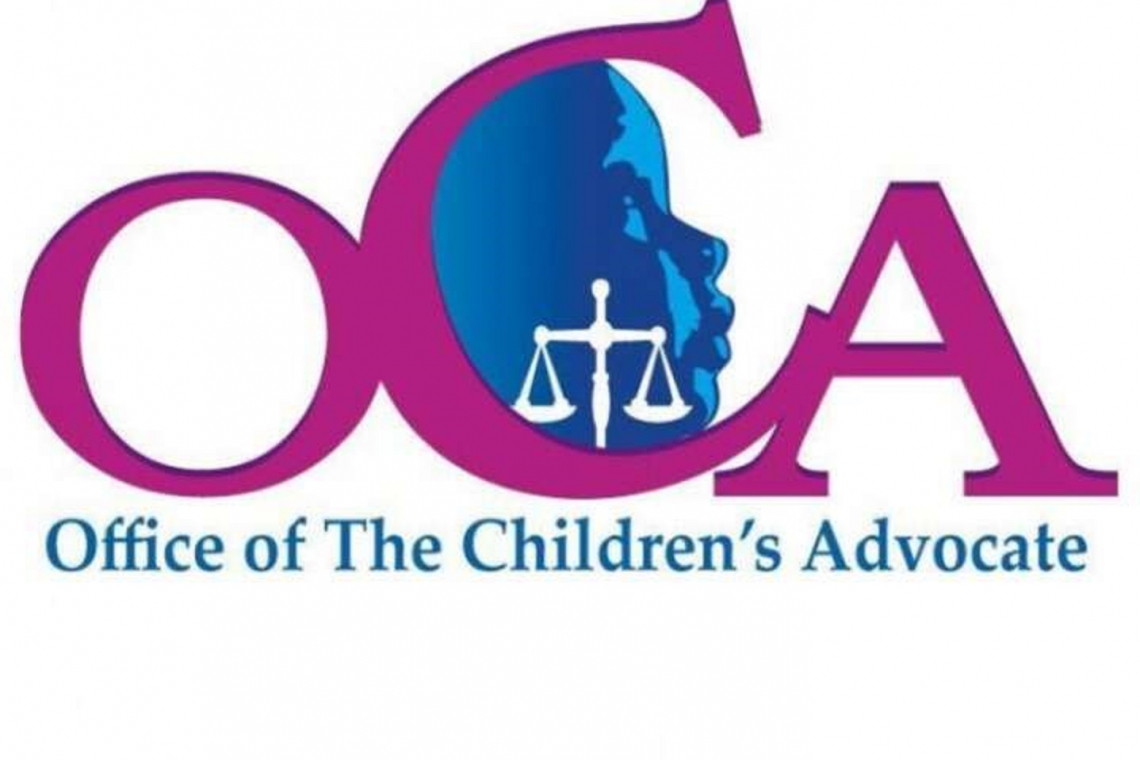Office of the Children’s Advocate graphic.
KINGSTON, Jamaica--Three organisations that champion child rights are making a last-ditch call on legislators to ensure that discretion is given to judges in the new Firearms Bill to safeguard youngsters from at-risk communities who might be forced to carry guns by gangsters seeking to avoid getting caught themselves.
The three, namely rights watchdog Jamaicans for Justice; the Office of the Children’s Advocate; and Child Watch Legal, an affiliate arm of lobby group Hear The Children’s Cry (HTCC), have sounded a note of caution ahead of today, Friday’s deliberations by the Upper House on the Firearms (Prohibition, Restriction and Regulation) Act which was recently approved in the House of Representatives and will replace the 1967 Firearms Act. The Bill proposes, among other things, a mandatory minimum sentence of 15 years for those convicted of illegal possession of a firearm or of stockpiling three or more firearms or 50 or more rounds of ammunition.
Previously, it was left up to judges to determine how much time a convict would spend behind bars as there was no minimum sentence. The maximum sentence of life imprisonment under the old law will, however, be retained in the new legislation.
The JFJ, in a recently issued statement, contended that while it stands in full support of the legislation in several respects, on the issue of criminal exploitation of children and the vulnerable, explicit provisions must be made.
According to the Act, proceedings against a person under the age of 18 years, in respect of any offence under it alleged to have been committed by that person, shall be dealt with in accordance with the Child Care and Protection Act or the Gun Court Act, as the case may require.
However, the JFJ says while the provision does make room for forcible use of firearms, it believes that where gangs may exploit youngsters and vulnerable groups and force them to act criminally, there is need for clarity.
“We are asking for the Act to be very clear [about – Ed.] how children having been exploited by criminals are addressed, because you cannot have children facing mandatory minimum sentences without the unique circumstances of each case being considered,” JFJ Executive Director Mickel Jackson told the Jamaica Observer in a follow-up interview.
According to Jackson, the fact that the Bill “makes some reference to the Gun Court Act and the Childcare and Protection Act” is no comfort.
“Some cross-analysis would have to be done around the wording of the Child Care and Protection Act and we make specific reference to Section 78, which says children aged 14 and older found guilty of a crime could very well face life imprisonment. Another subsection says that a child aged 12 and 13 could face up to 25 years. The government is urged to review those pieces of legislation to ensure that our children and their unique circumstances are considered,” Jackson noted.
The JFJ executive director is, in the meantime, urging the upper chamber to use the United Kingdom’s sentencing guidelines as a point of reference in fixing the matter of judicial discretion.
Children’s Advocate Diahann Gordon Harrison, while admitting that she has not reviewed the Bill in its entirety because of circumstances outside her control, said the systematic control the legislation allows is needed, but said there is a “need for fairness on all sides”.
“We know, for example, that in our Jamaican culture we do have youngsters who are unwilling participants – people give them firearms to transport in their school bags, they feel forced. One of the discussions I certainly have raised in one of my annual reports, wearing my hat as National Rapporteur on Trafficking in Persons, is that forced criminality, which is the forced participation in a criminal activity, is actually recognised as a form of human trafficking in other countries; and so it really would be quite concerning if, [in the case of] a child who has been forced to participate in a criminal activity, the possibility exists that that child could be saddled with a mandatory sentence. So, these are some of the nuances I think we need to look at carefully so that we have legislation that is robust, precise and aggressive,” Gordon Harrison said.
Child Watch Legal’s Priscilla Duhaney, in commenting on the issues, said, “To some extent we agree with the JFJ. The mere fact that a minor is deemed to lack the mental capacity, legislators must take this into consideration. It may be presumed that a minor is being groomed and/or coerced for the purpose of carrying out their criminal enterprise. Legislators should therefore be laser-focused on the implications it will have on a child who lacks the will to do anything contrary to orders given by gang leaders, such as what is referred to under Sections 14 and 15 of the Firearms Act.” ~ Jamaica Observer ~







